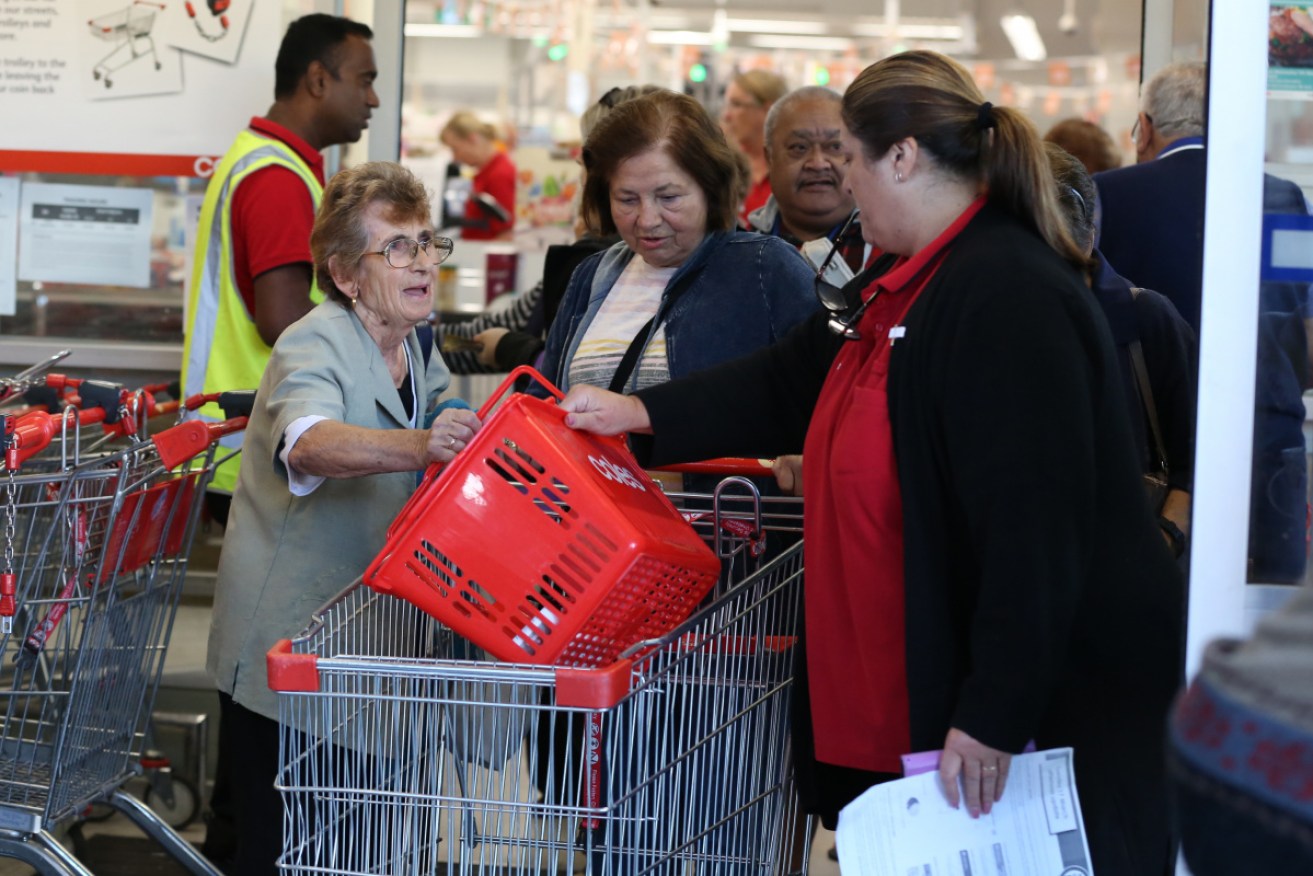Coles reveals panic-buying’s massive boost to sales


Coles sales have fallen from last year's coronavirus-induced peaks. Photo: AAP
Coles has enjoyed a 13 per cent boost to its third-quarter grocery and alcohol sales, driven by panic buying of toilet paper and pasta in the early days of the coronavirus pandemic.
The supermarket giant’s revenue rose to $8.23 billion as shoppers stockpiled groceries in the face of looming COVID-19 restrictions – leading to unprecedented sales growth of 13.1 per cent sales growth in the three months to the end of March.
By comparison, the successful 2019 Christmas shopping period yielded second-quarter comparative sales growth of 3.6 per cent across Coles’ supermarket network.
“The significant demand was seen across all categories, particularly grocery, health and home and meat,” the company said in a statement to the ASX on Wednesday.
Chief executive Steve Cain said short-term supply issues for items such as flour and toilet paper would likely continue as demand remained elevated.
He also said it could be weeks or months before supermarkets were fully restocked with products such as disinfectant wipes and hand sanitisers, though they were still available.
Coles said it had hired 12,000 staff to help cope with the customer rush – and had faced increased costs for cleaning and security.
- Read Coles full quarterly sales report here

A security guard in the toilet paper aisle at a Sydney supermarket.
It was continuing to employ more staff to meet home delivery and click-and-collect orders. These grew 14 per cent during the three months – despite both services being suspended for weeks at the height of the panic buying.
Sales at Coles’ Liquorland, First Choice, Liquor Market and Vintage Cellars chains rose 7.2 per cent in the quarter, earning revenue of $740 million. But the company said the summer bushfires had initially hit the chains.
“Prior to the onset of COVID-19, the liquor market remained subdued as customer drinking habits were impacted by the bushfire smog and subsequent floods,” it said.
Since the start of April, the supermarkets’ comparable sales growth has broadly trended back towards pre COVID-19 levels.
Mr Cain said shoppers were packing baskets with more food but shopping less often, meaning fewer convenience and impulse products.
There has also been a move towards more cooking and baking from scratch, supported by the success of TV cooking programs such as MasterChef.
“[People] are eating more fresh food,” chief executive Steve Cain said.
“Veg sales are the highest penetration they have ever been.”
Coles said its Easter trading was more subdued this year than typically, due to restrictions on traditional events and celebrations for families and friends.
Mr Cain said it was unclear how long the various impacts of COVID-19 would continue to affect the retailer. Much would depend on the extent or timing of existing or future government measures.
He said most Australians wanted the economy to restart as soon as possible.
-with AAP








